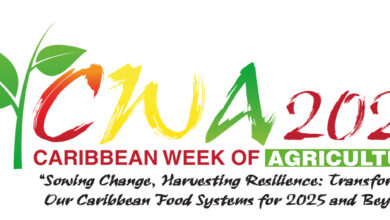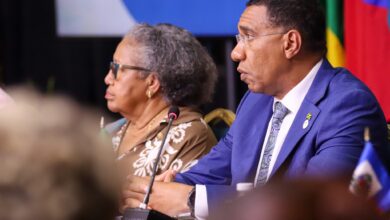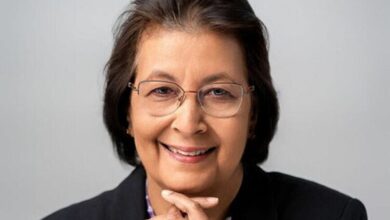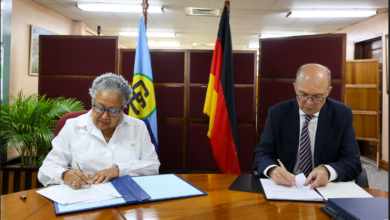Mr. Chairman
Deputy Prime Minister of Barbados
Other Honourable Ministers
Representatives of the European Union (EU)
EU Deputy Regional Officer
Distinguished Delegate
Representatives of the Private Sector
Members of the Media
Ladies and Gentlemen
Four years ago in Nassau, The Bahamas, this Council held its inaugural meeting. The then Chairman counselled that it behoved us to ensure that this body made certain that the Community could no longer carry on with “business as usual.”
Today, as I welcome you to this ninth meeting, members of the Community Council, I think one can fairly say, that it is no longer business as usual, when one looks at the agenda before us as well as at the program of activities on which the community has embarked since the beginning of the year.
As the second highest organ of the Community, and the one specifically charged with overseeing the implementing of the community policy as determined by the supreme authority – the Conference of Heads of Government, you should be seized of the overall program of community activity.
Though the year is not yet a full month old, CARICOM has already seen a flurry of activity. At the beginning of the month, the Bureau of the Conference of Heads of Government met in an Associated Member State for the first time when it held its Fourteenth Meeting in the Turks and Caicos islands. It was a heart-warming and historic occasion with a sense of widening of community and a spirit of greater inclusiveness.
This week, the Budget Committee of the Community met here at the Community headquarters to deliberate on the Secretariat's budget. Its recommendations are before you today. After two days of intense and late-night deliberations by Officials of Member States, and representatives of regional organisations, including the Regional Negotiating Machinery (RNM), the Caribbean Development Bank (CDB) and the University of the West Indies (UWI), regional ministers responsible for trade and economic development – including many of you present here – met in all-day session yesterday to decide on a large number of issues which are likely to prove critical to the livelihood of the peoples of the Region.
Today as the Community Council of Ministers, you meet to do more than the statutory task of preparing for the upcoming Inter-sessional Meeting of the Conference of Heads of Government carded for Belize on 3-5 February. Indeed, this opening ceremony will witness a special activity – the signing with representatives of the European Union, agreements worth over 70 million euros – that is over 66 million US dollars (US$66 million) – covering assistance to the regional rum industry, and assistance in university training for students of the CARIFORUM – the wider Caribbean region. It is a most appropriate setting for such an activity as in a very direct way, the winning of these resources is the fruit of the efforts of many of you present here today. It also represents the true substance of our cooperation – private and public sector – with our European partners.
But the agenda before you will take us beyond this today. Tomorrow, Foreign Ministers go into retreat in the lush interior of Guyana to reflect, inter alia, on a new foreign policy strategy for the Region.
Next week will also see the community fanning out in four directions with a special team of Heads of Government led by the Rt. Honourable Prime Minister of the Bahamas, accompanied by the Prime Minister of St Vincent and the Grenadines and the Secretary General, journeying to Trinidad and Tobago to offer whatever assistance the Community can to that Member State, as it seeks to resolve its post-December 10 elections difficulties. At the same time, another Community initiative, a Meeting of Ministers of Information takes place in Antigua and Barbuda, to see what can be done to deal with the consequences of the temporary closure of the Caribbean Media Corporation (CMC). There can hardly be effective regional integration without regional dissemination of information. Also on Monday a CARICOM Ministerial Mission led by the Hon Julian Hunte, Foreign Minister of Saint Lucia departs for Haiti to update the Community on developments in that de facto member state.
Equally important, on Thursday, the First Meeting of the Advisory Council to the Prime Ministerial Sub-committee on the Single Market and Economy, will take place in Jamaica, thereby formalising one of the key mechanisms to afford civil society to input into the process of single market development.
All of these activities are expected to feed into the Belize Inter-sessional Summit beginning next Sunday, 3 February. That summit itself will end with a special one day summit between the CARICOM Heads of Government and Their Central American counterparts looking at cooperation between the two Regions in trade investment, security and sustainable development concerns.
That meeting itself, would be immediately followed by a meeting of our Foreign Ministers with their US counterpart, Secretary of State Colin Powell, in The Bahamas on 7 February. I am sure, members of the Community Council, you can say with certainty and perhaps with a tinge of concern that the Community is moving at a pace that cannot be considered “Business as usual”. I won't be surprised if you were to say to your not so sturdy steed, “Whoa! CARICOM!”
Looking back at that First Meeting's agenda of 17 items, today's 12 compare favourably, and while the implementation of the Single Market and Economy (SME) continues to appear on our agenda, newer issues such as health concerns caused by HIV/AIDS have become fairly critical to our agenda, as we increasingly recognise that the health of our region is the true wealth of our Region.
Riding alongside health concerns and equally important are security concerns, whose importance has been highlighted by the September 11 events.
Overall, it seems that when governance is also taken into account, it is fair to say that the issues directly impacting on the quality of life of the people of the Community have taken a position of equal prominence with those of earlier traditional dominance of production and trade and investment.
It signals a deepening of the integration process from regional economic integration to regional economic and social integration.
It is this Council, more than any other body of the Community that has the primary responsibility to steer this overall process, ensuring the balanced quantitative and qualitative development in the community, and in the lives of its peoples.
It is against this background that I have great pleasure in welcoming the Honourable Ministers to this Meeting of the Community Council. I wish to extend a particular welcome to those Ministers making their maiden appearance at the Council.
I welcome none more warmly than the new Minister of Foreign Affairs and Cooperation of Belize, the Hon. Assad Shoman, both as member of the Council and as its Chairman.
Honourable Minister, in welcoming you to this important position of leadership in the Community, I wish to assure you of my full support and that of the staff of the Secretariat in the discharge of your most important responsibility. I now invite you to address us and take charge of the meeting.





